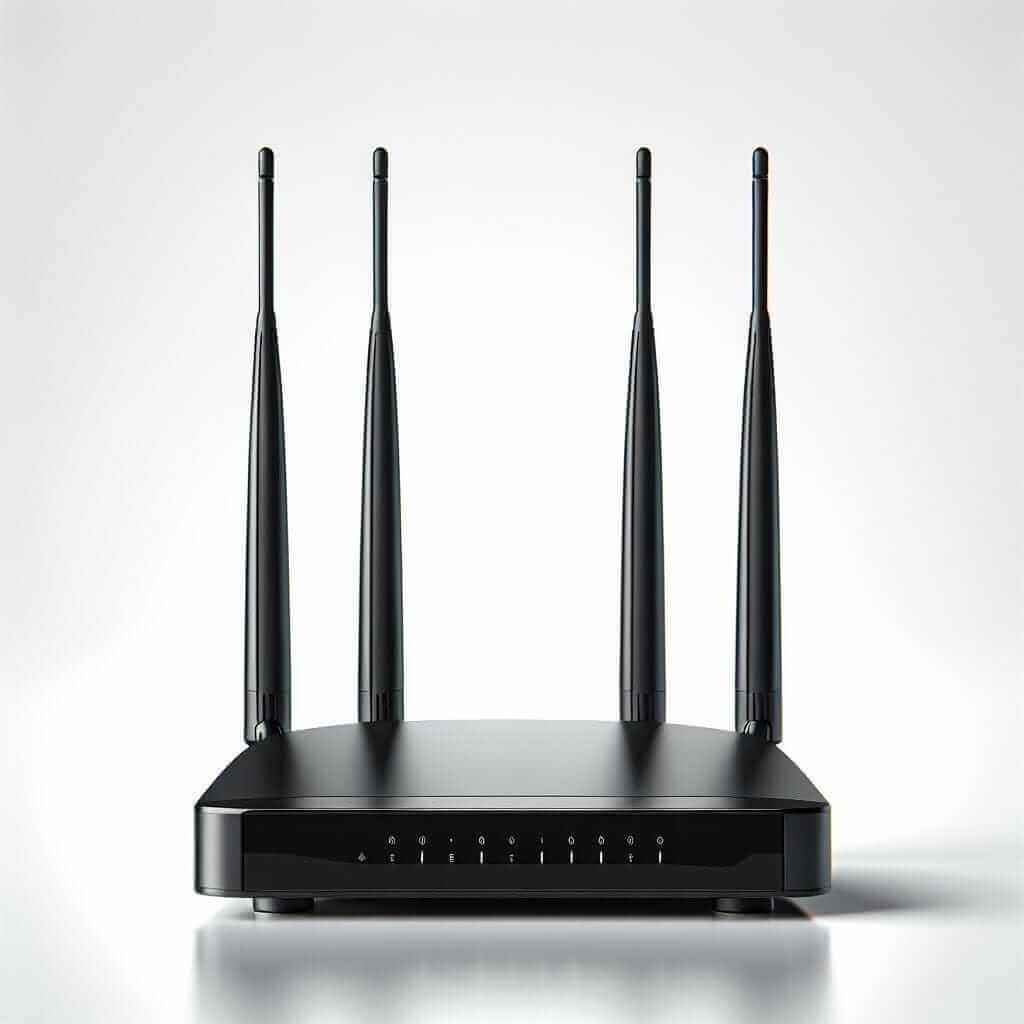In today’s digitally interconnected world, understanding technological terms is increasingly important, even in the context of language proficiency exams like the IELTS. One such term that frequently appears in IELTS reading and listening sections, and can be incorporated into speaking and writing, is “router.” This article will delve into the meaning of “router,” its relevance in the IELTS exam, and provide you with the necessary tools to confidently use this and related vocabulary to boost your score.
Let’s start by exploring some synonyms and antonyms for “router,” along with their phonetic transcriptions and example sentences:
| Word | Phonetic Transcription | Part of Speech | Definition | Example Sentence |
|---|---|---|---|---|
| Router | /ˈruːtər/ | Noun | A device that forwards data packets between computer networks. | A router is essential for connecting multiple devices to the internet. |
| Gateway | /ˈɡeɪtweɪ/ | Noun | A device or software that connects two different networks. | The gateway acts as a bridge between the local network and the internet. |
| Modem | /ˈmoʊdem/ | Noun | A device that enables a computer to transmit data over telephone or cable lines. | You need a modem to establish an internet connection. |
| Network Switch | /ˈnɛtwɜːrk swɪtʃ/ | Noun | A device that connects devices on a computer network and filters and forwards data packets. | A network switch improves network efficiency by directing traffic only to the intended recipient. |
| Hub | /hʌb/ | Noun | A device that connects multiple devices on a network, broadcasting data to all connected devices. | Hubs are less sophisticated than switches and can lead to network congestion. |
Understanding “Router”
Definition and Usage
A router is a networking device that forwards data packets between computer networks. It acts as a traffic director, determining the optimal path for data to travel from its source to its destination. Routers play a crucial role in connecting homes and businesses to the internet and enabling communication between devices within a network.
Importance in the Digital Age
In today’s digital landscape, routers are ubiquitous. They are essential for accessing the internet, streaming multimedia content, online gaming, video conferencing, and countless other online activities. Understanding how routers function and their significance in facilitating communication is essential in our increasingly interconnected world.
“Router” in the IELTS Exam
Relevance to IELTS
The term “router” frequently appears in the IELTS exam, particularly in:
- Listening Section: You might encounter “router” in conversations about technology, internet connectivity, or home networking.
- Reading Section: Passages discussing computer networks, internet infrastructure, or technological advancements are likely to mention routers.
- Speaking Section: You could use “router” when describing your home network, internet usage, or technological experiences.
- Writing Section: If the task involves describing a process or discussing technology-related topics, you might need to use “router” in your response.
Example in IELTS Listening
You hear a conversation between a customer and a technical support agent:
Agent: “Okay, I understand the issue. Can you please check if the lights on your router are blinking?”
Customer: “Yes, the lights are blinking.”
Agent: “Alright, that indicates the router is receiving a signal. Let’s try restarting it.”
In this example, understanding the meaning of “router” is essential to comprehend the conversation and answer questions related to the internet connectivity problem.
Using “Router” in Your IELTS Responses
Speaking Example
Examiner: “How has technology changed the way we live and work?”
Candidate: “Technology has revolutionized our lives. For instance, with the advent of high-speed internet and devices like routers, we can now work remotely from anywhere in the world.”
In this example, the candidate effectively uses “router” to illustrate the impact of technology on remote work possibilities.
Writing Example
Writing Task 2: Discuss the advantages and disadvantages of widespread internet access.
Body Paragraph: “One significant advantage of the internet is its ability to connect people globally. Through routers and network infrastructure, individuals can communicate and collaborate regardless of physical location, fostering innovation and knowledge sharing.”
Here, the use of “router” strengthens the argument by highlighting its role in facilitating global communication through the internet.

Idioms and Related Phrases
While “router” itself is not commonly used in idioms, here are some related phrases that can enrich your vocabulary:
- Network connectivity: Refers to the ability of devices to connect to a network, often facilitated by a router.
- Wireless network: A network that uses radio waves to transmit data, often created using a wireless router.
- Bandwidth: The amount of data that can be transmitted over a network connection in a given amount of time, often influenced by the router’s capabilities.
- Data transfer: The process of sending and receiving data over a network, managed by routers.
- Internet Service Provider (ISP): The company that provides internet access, often requiring a router to connect devices.
Conclusion
Mastering technology-related vocabulary like “router” is essential for success in the IELTS exam. By understanding its meaning, usage, and relevance to various exam sections, you can confidently incorporate it into your responses and demonstrate your command of the English language in a technologically driven world. Remember to practice using “router” and related terms in your speaking and writing to solidify your understanding and improve your fluency.